There’s a reason why your skin can feel different after a series of holiday parties, BBQs, or mojito-filled beach days. “What you eat affects your skin—for better or worse,” Ariel Ostad, MD, a fellow of the American Academy of Dermatology, told Health. Depending on the type of coffee you drink, for example, you could be aiding the development of skin dryness—one change related to aging skin.
A few of the other drinks and foods that can age you include alcohol, red meat, and fried foods. Here's more about what you should eat or drink in moderation to reduce the risk of skin aging.
1. Coffee 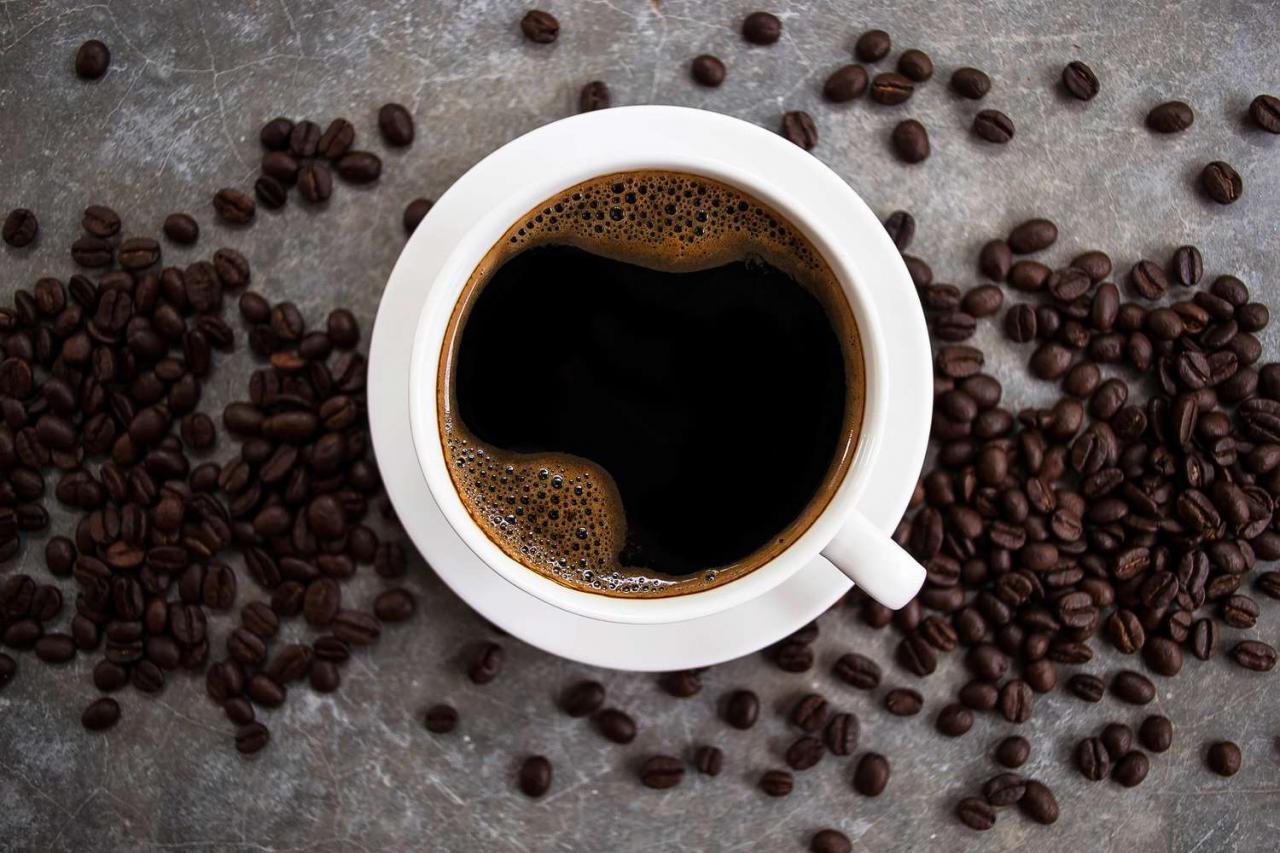
Surapap Maneechote / Getty Images
Coffee is the biggest source of caffeine, a substance that occurs naturally in coffee beans, and added sugar is often in on-the-go or homemade coffees. However, the two coffee ingredients can have a negative aging impact on your skin in relation to dehydration.
Dry skin is one indicator of aging skin, and dehydration can contribute to dry skin. To reduce further dehydration, one recommendation is to avoid caffeine and sugar. Researchers also found that caffeine can decrease the creation of collagen, a protein that keeps skin firm and healthy, in human skin cells. However, more research is needed in relation to this link.
Drinking plain coffee can help you and your skin stay hydrated. Also, research has shown that drinkingcoffee can have several health benefits. One benefit includes a possible link between coffee or caffeine and a reduced risk of non-melanoma skin cancers.
2. Sweets and Sugary Drinks 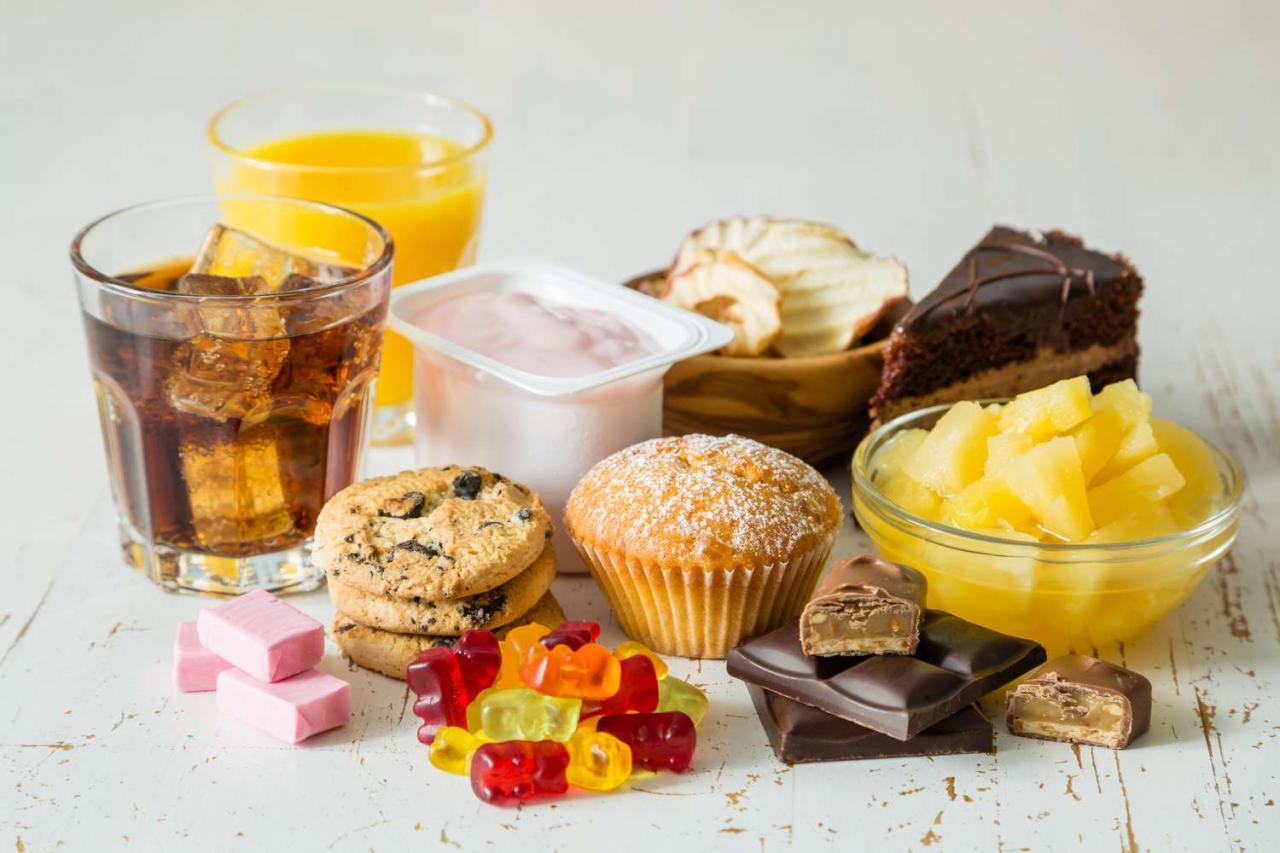
a_namenko / Getty Images
Other than being dehydrating, sugar plays another role in aging skin. Sugar overload from high-sugar foods and drinks—like desserts, energy drinks, or soda—may kick-start a process called glycation.
When you consume more sugar than your cells can process, the excess sugar molecules combine with proteins. This combination produces advanced glycation end products (AGEs). AGEs may damage your skin's collagen.
You don't have to eliminate sugars from your diet. You can reduce your sugar intake by:
Drinking more water instead of energy drinks, sodas, or other high-sugar drinksLimiting candy and dessertsUsing natural sweeteners, like Stevia or monk fruit sweeteners 3. Alcohol 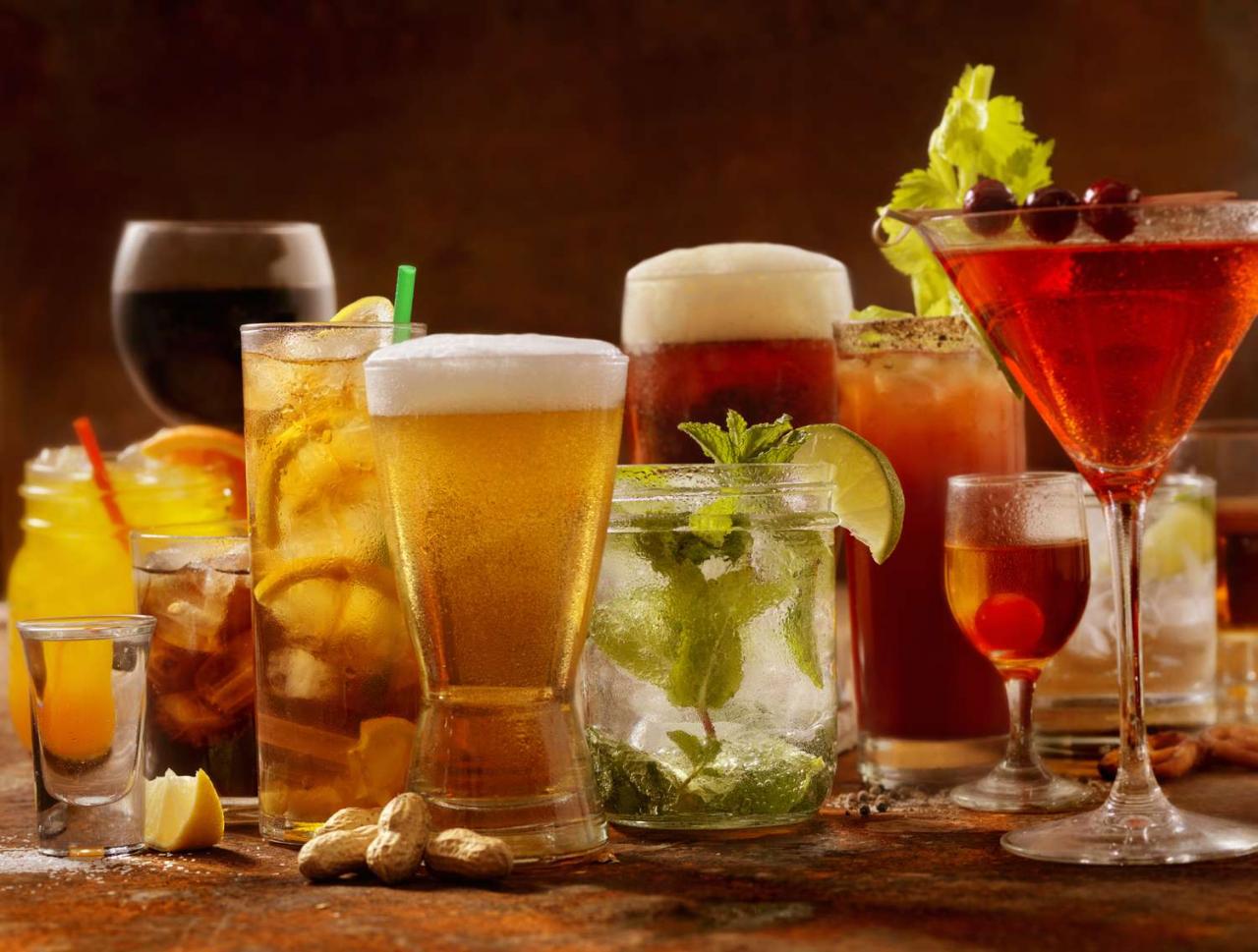
LauriPatterson / Getty Images
Drinking alcohol may result in aging, especially of the face. One study found that higher alcohol consumption was associated with more severe facial aging signs like wrinkles.
Alcohol limit recommendations are two drinks daily for males and one drink for females. An option to help limit your alcohol intake is to try non-alcoholic drinks. Zero-alcohol beer and wine options are available, and you can use water-based substitutes in mixed drinks.
4. Salty or Spicy Foods 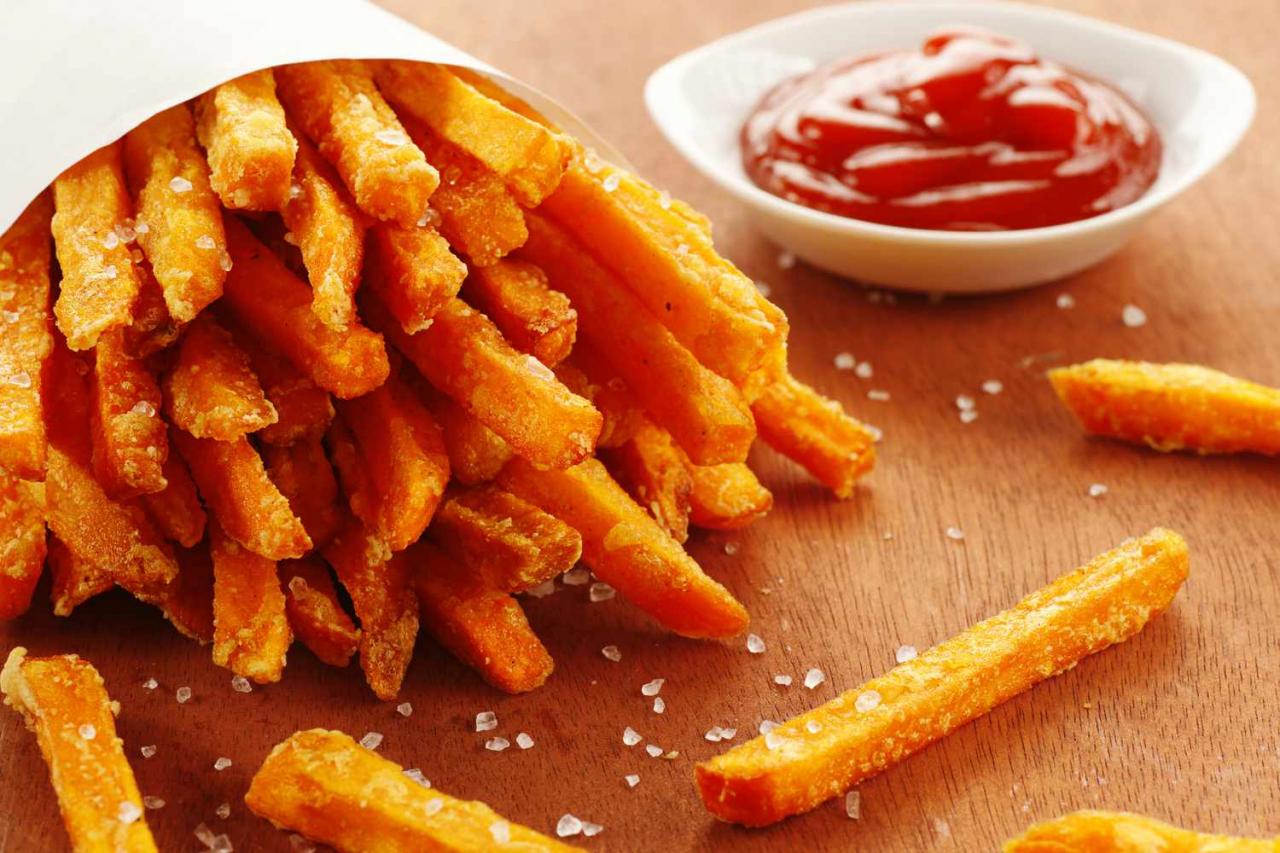
TheCrimsonMonkey / Getty Images
Diets with high salt content and spicy foods can negatively affect your skin health regarding aging.
To lower your spicy food intake, order your food mild when possible. Also, the recommended daily limit for sodium intake is 2,300mg. To stay under that limit, you can:
Choose unsalted nuts instead of chipsOpt for fresh, frozen, or canned veggies without sauces and with lower sodiumUse fresh or frozen lean meats or seafood 5. Fried Foods 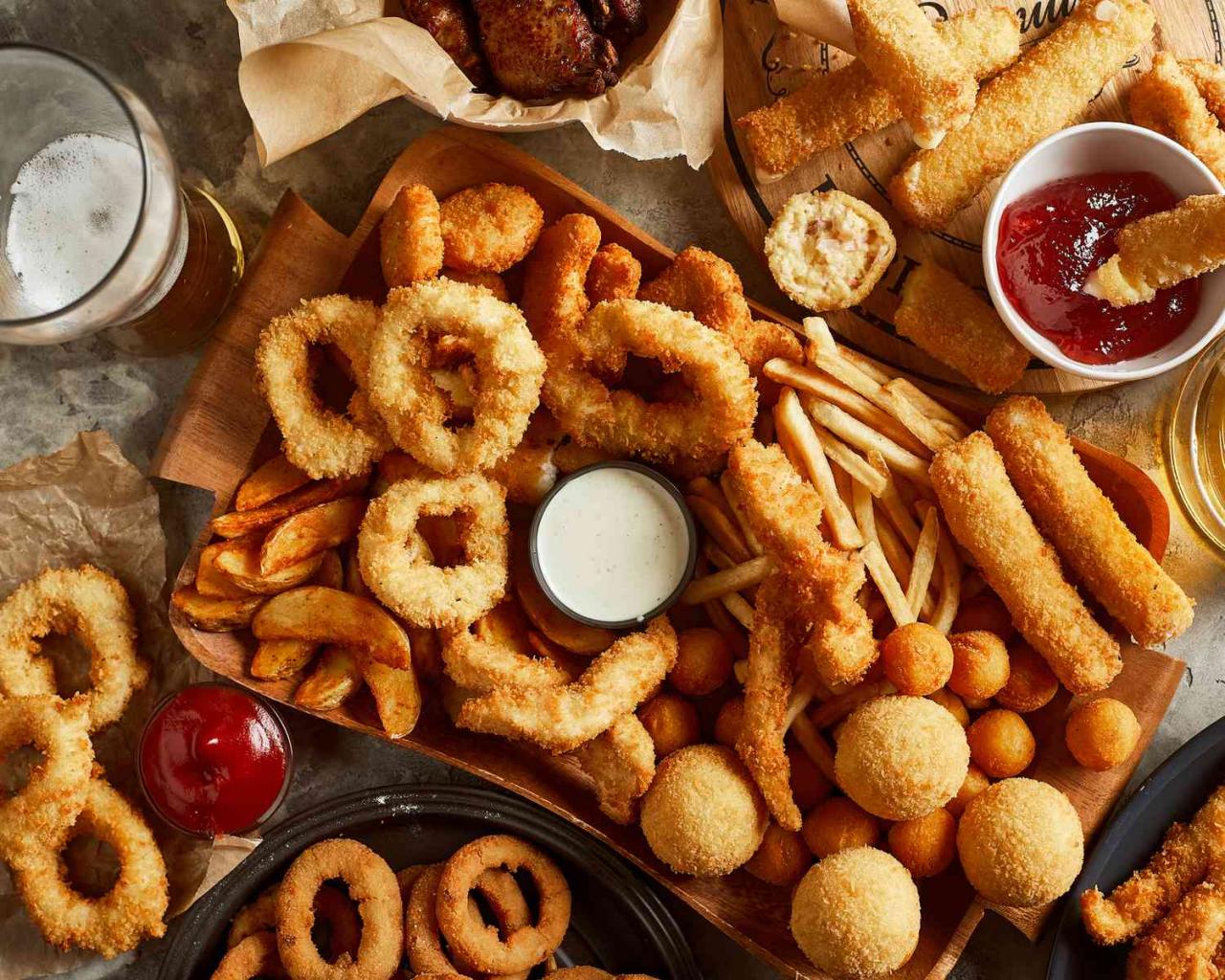
shoot_nik / Getty Images
Another common source of AGEs and inflammation that may damage skin is fried foods. A marker for AGEs can increase 200-fold by increasing the temperature and conditions of cooking, such as when frying.
Eat fried foods in moderation. If possible, try alternative ways of cooking the foods—for example, making baked or mashed potatoes instead of French fries.
6. Charred Meat 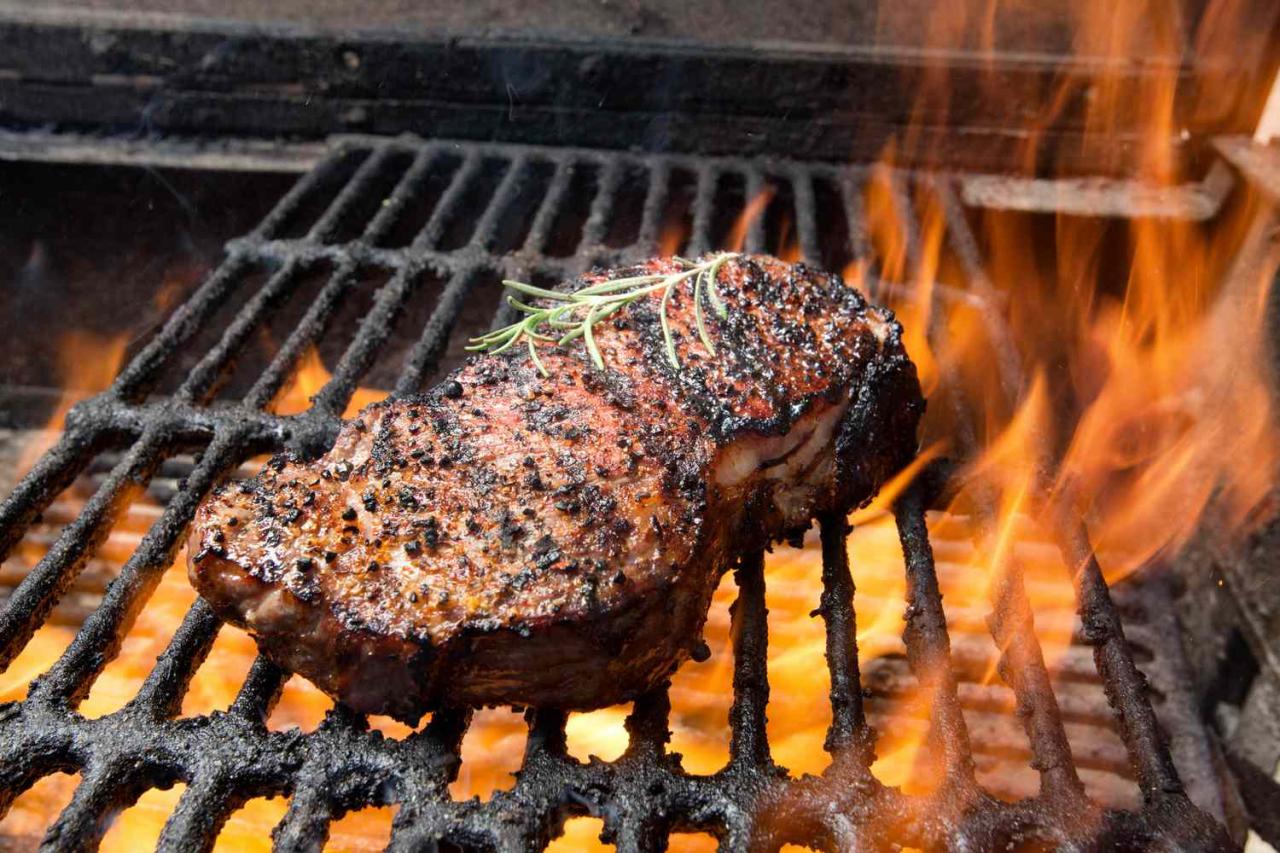
Joey Ingelhart / Getty Images
That black char on your burger may contain pro-inflammatory hydrocarbons, which are compounds that promote inflammation. Collagen breaks down due to enzyme activity when inflammation occurs.
You don't need to give up barbecued meats to avoid possible aging effects. Just ensure you scrape off the black stuff and clean the grill afterward so you don't contaminate your next meal.
7. Red Meat 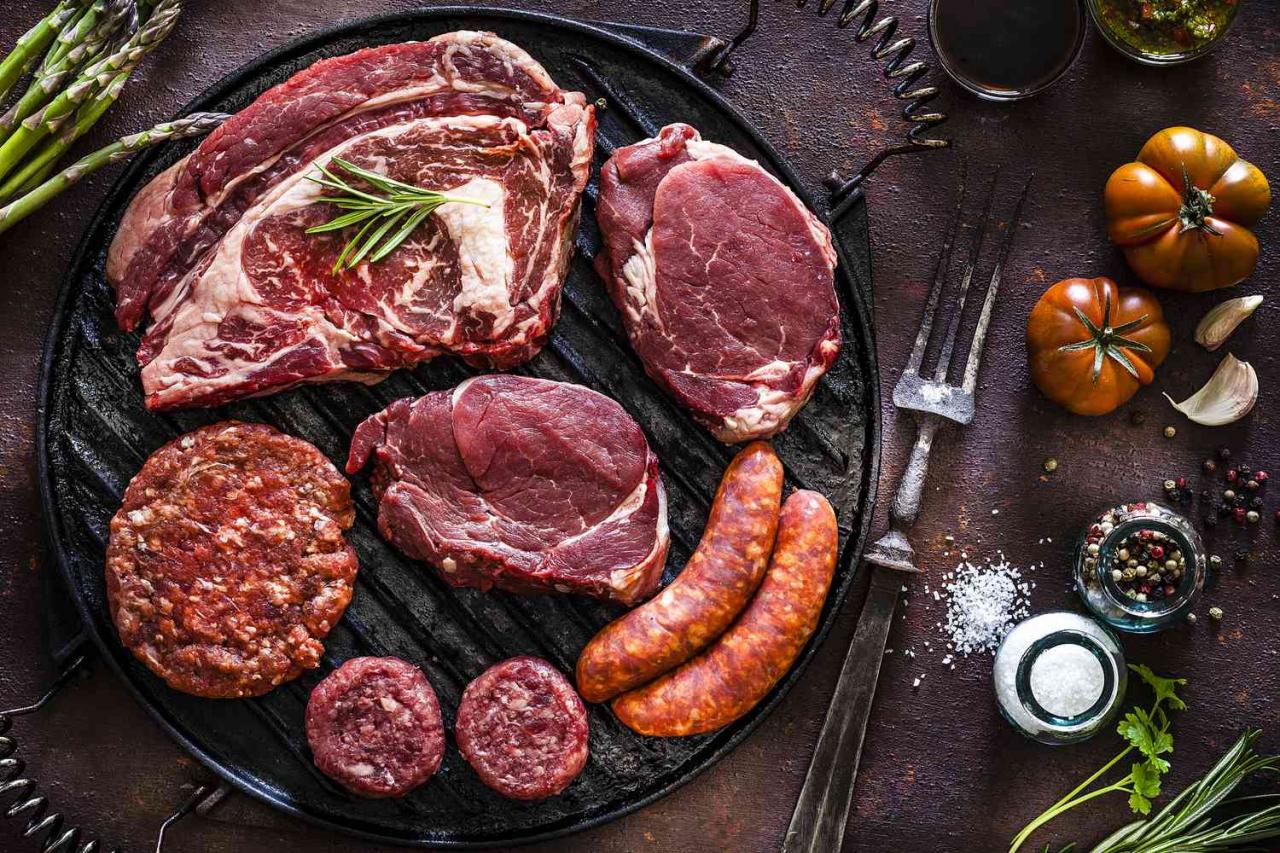
fcafotodigital / Getty Images
Fatty, red meats include meats such as beef, pork, and lamb, and these meats generate free radicals. Free radicals are unstable molecules that may trigger a process that can lead to cell damage. This damage may affect your skin’s ability to protect itself and generate collagen.
You may consider limiting how often you eat red meat and opt for lean meats or skinless poultry. You can also load up on antioxidants, which may prevent or delay certain types of cell damage. "Antioxidant-rich foods and serums help combat age-promoting free radicals," said Dr. Ostad.
8. Trans Fats 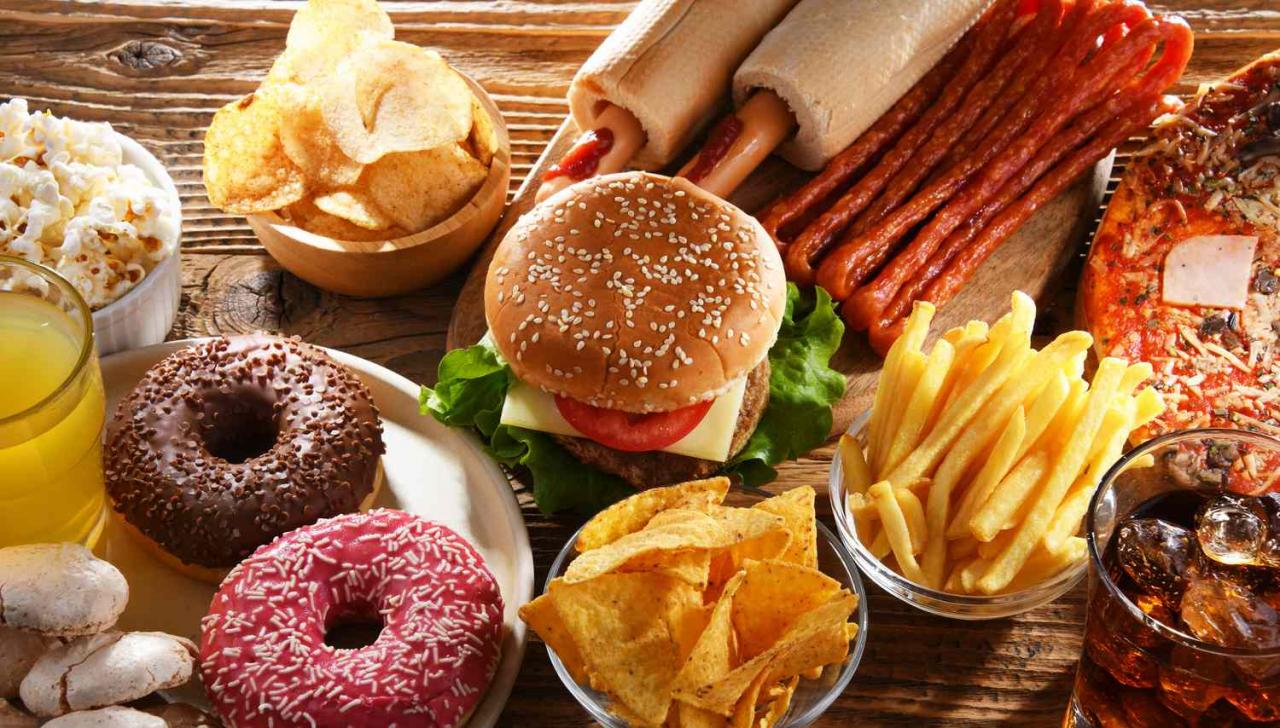
monticelllo / Getty Images
In addition to raising LDL (bad) cholesterol and the risk of heart disease, trans fats may also be bad for your skin. They also promote inflammation.
Read the label for foods that say "0 grams (g) trans fat," as the food can still contain under 0.5g of artificial fat. Also, avoid or limit products that list partially hydrogenated oil on the ingredient label.
Trans fats are often found in fried, packaged, and processed foods.
A Quick Review
Your skin health is affected by what you eat and drink. Consuming too many sweet treats and drinking a lot of alcohol, among other foods and beverages, may cause your skin to age at a more rapid pace. However, it's OK to enjoy these items in moderation. If you have any questions about your own skin health, reach out to a healthcare provider for guidance.